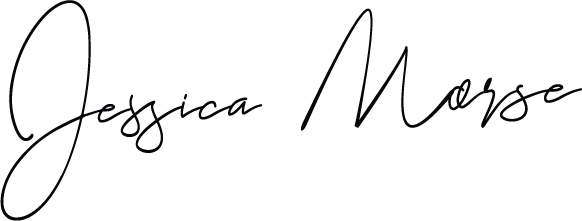Below is a (short?!) list of toxic ingredients found in many conventional personal and beauty products. If you really love science, you can learn more by reading A Consumer’s Dictionary of Cosmetic Ingredients: Complete Information About the Harmful and Desirable Ingredients Found in Cosmetics and Cosmeceuticals by Ruth Winter. If you want layman’s terms in a quick, easy, and even fun read, I highly recommend No More Dirty Looks by Siobhan O’Connor and Alexandra Spunt.
COAL TAR: Made from bituminous coal. Ew.
Function: To soften skin, control itching. Also used in many synthetic colors.
Found in: Shampoo, (especially anti-dandruff varieties) conditioner, lipstick, hair dye, toothpaste, mouthwash
Listed as: It is usually not listed on labels (!)
Risks: Eye and skin Irritant, known human carcinogen. The EU banned Coal Tar in 2004.
ETHANOLAMINES (DEA, MEA, TEA, ETA):
Function: Surfactant, foaming agent, emulsifying agent, foaming agent, pH adjusting chemical.
Found in: Shampoo, soap, facial cleanser, body wash, hair dye, hair relaxer, deodorant, moisturizer, baby products, acne treatment products, shaving products.
Listed as: Cocamide DEA, Lauramide DEA, Cocamide MEA, DEA-Cetyl Phosphate, DEA Oleth-3 Phosphate, Linoleamide MEA, /myristamide DEA, Oleamide DEA, Stearamide MEA, TEA Laryl Sulfate, Triethanolamine.
Risks: May form carcinogenic compounds called nitrosamines on the skin or in the body after absorption. Studies have linked topical application to cancer in lab animals.
FORMALDEHYDE: What they use to embalm the dead.
Function: Preservative, germicide, fungicide.
Found in: Moisturizer, styling products, shampoo, conditioner, hair spray/dyes, “keratin” hair treatments, anti-aging treatments, facial cleanser, sunscreen, facial moisturizer, foundation, eye makeup, acne treatments, mascara, body wash/cleansers, deodorant, concealer, exfoliator, powder, body scrubs, bath oils/salts, eye/contact care, lip makeup, shaving products, after sun product, douche/personal cleanser, makeup remover, depilatory cream/hair remover, liquid hand soap, nail treatments, Fragrance.
Listed as: Cormaline, Formis Aldehyde, Oxymethane. Sometimes it is not listed on the label because it is a by-product of two other ingredients, such as DMDM Hydantoin, quaternium-15, Diazolidinyl Urea, etc.
Risks: Know human carcinogen, irritant to the eyes and upper respiratory tract, can damage DNA. Banned by the European Union.
FRAGRANCE: This smells bad…
Function: To seduce you and cover up the ugly smell of dirty chemicals
Found in: Almost Everything.
Listed as: Fragrance, Perfume, Parfum.
Risks: Eye, skin and respiratory allergen and irritant. Some are known neurotoxins. Most contain Phthalates, which are serious endocrine (hormone) disruptors. More on that below.
LEAD & MERCURY: Heavy metals with heavy consequences.
Function: Preservative
Found in: 99% of lipsticks, mascara, eye make-up
Listed as: Thimerosal, or not listed due to the fact that it is a “contaminant” of another ingredient.
Risks: Brain damage, depression, miscarriage, renal failure. Enough said.
PARABENS: I know you have heard of these bad boys.
Function: Preservative, anti-bacterial agent.
Found in: Everything. Go take a look on the back of every bottle/package in your bathroom.
Listed as: Methyl/Ethyl/Propyl/Butyl/Isobutyl Paraben
Risks: Hormone/Endocrine disruptor. Increased risk of infertility, certain types of cancer. Impairs development of fetus/young children.
PETROLEUM DISTILLATES/SOLVENTS: Extracted by distillation during the refining of crude oil. Would you eat it?
Function: Solvent
Found in: Skincare, hair and nail products, mascara
Listed as: Petroleum Distillate, Stoddard Solvent, Liquid Paraffin.
Risks: Increased potential of developing undifferentiated tissue connective disease. Aspiration can cause chemical pneumonia, pulmonary damage, and death, according to an EPA report. Banned by the European Union.
PHTHALATES: Imagine melting down your plastic water bottle and slathering it all over your body.
Function: Industrial chemicals used as plasticizers and solvents
Found in: Most fragrances, nail polish, mascara, lotion, hair spray, deodorant, hair gel/mousse.
Listed as: Anything with “Phthalate” in its name, DBP, DEHP, DMP, DEP, but in fragrance it is not listed at all.
Risks: Suspected carcinogen to the lungs, kidneys, and liver. Known endocrine (hormone) disruptor. Can cause birth defects in male reproductive system and can impair fertility.
PROPYLENE GLYCOL: Can be safe when naturally derived.
Function: Penetration enhancer, humectant (moisture-sealer), keeps products from melting in heat and freezing in cold.
Found in: Shampoo, conditioner, face wash, body wash, liquid hand soap, bar soap, acne treatments, hair dye, shaving cream, sunscreen, toothpaste, toner, foundation, bronzer, nail polish, eye make-up, perfume, baby products.
Listed as: Propylene Glycol, Polyethylene Glycol, Diethylene glycol, 1-2 Propanediol, 1-2 Dihydroxypropane, Methylethylene Glycol.
Risks: Alters skin structure, allowing for deeper penetration of itself and other chemicals. Skin irritant, allergen.
SODIUM LAURETH SULFATE & SODIUM LAURYL SULFATE: Squeaky clean?
Function: Inexpensive surfactants that foam and clean while cutting through oil.
Found in: Most cleansers; shampoo, body wash, face wash, baby wash, bubble bath, soap, exfoliants, mascara, toothpaste.
Listed as: Sodium Laureth Sulfate, Sodium Lauryl Sulfate, Sodium Sulfate, PEG Lauryl Sulfate, Sodium Dodecyl Sulfate, Sodium Salt Sulphuric acid.
Risks: Endocrine (hormone) disruptor, skin and eye irritant, cannot be metabolized by the liver.
TOLUENE:
Function: Solvent.
Found in: Nail polish, nail hardener, hair dye, fragrance,
Listed as: Toluene, Toluol, Methylbenzene, Phenylmethane.
Risks: Known carcinogen can cause spontaneous abortion, liver damager, lung damage. Banned in the European Union.
TRICLOSAN: Germ killer or super-bug creator?
Function: Synthetic antimicrobial, antifungal, antibacterial, antiviral agent and preservative.
Found in: soaps, hand sanitizer, toothpaste, mouthwash, acne treatments, antiperspirants, lipstick.
Listed as: Triclosan, many other variations involving the prefix “Chloro”.
Risks: Skin, eye, & lung irritant, endocrine (hormone) disruptor. Concern exists that regular use could cause susceptibility to resistant strains of bacteria.

